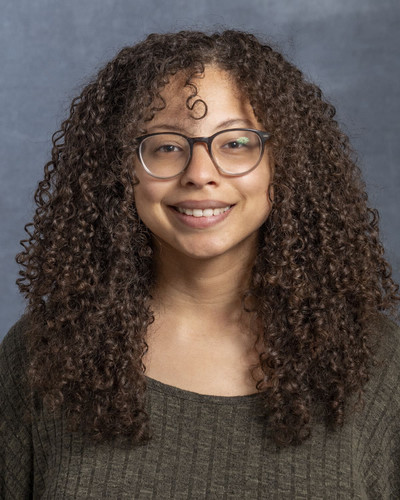How to Apply to a Nursing Graduate Program
Program Profile
Doctor of Nursing Practice (DNP)
Doctor of Philosophy in Nursing (PhD)
Post-Graduate Certificate Nurse Practitioner (PGC)
Handbook
Sample Plans of Study
DNP Program:
Nurse Faculty Loan Program (NFLP)
The Nurse Faculty Loan Program (NFLP) is a loan forgiveness program that prepares and trains qualified nurse educators to fill faculty vacancies and increase the number of trained nurses entering the workforce. Each year, the UMSL College of Nursing must apply for and receive NFLP funding.
Graduate Advising
The UMSL College of Nursing utilizes both professional staff academic advisors and faculty advisors to assist students in their academic and professional development. Each student is assigned to an academic advisor and a faculty advisor. The academic advisor helps with program application and admission, degree planning, enrollment and interpretation of policy and procedure. The faculty advisor provides research, capstone, and practice guidance and monitors academic performance and progress. Download Graduation/Conferral Letter Request Form
 Alyssa Nelson
Alyssa Nelson
Senior Academic Advisor
Office: 113 Nursing Administration Building
Email: an6gt@umsl.edu
Phone: 314-516-4542
 Stacy Pearson
Stacy Pearson
Senior Academic Advisor
Office: 118 Nursing Administration Building
Email: pearsonsr@umsl.edu
Phone: 314-516-7028
Characteristics of DNP versus PhD in Nursing - Terminal Degree Options in Nursing
| Characteristic | Doctor of Nursing Practice | PhD in Nursing |
|---|---|---|
| Focus |
|
|
| Degree Objective |
|
|
| Curriculum Focus |
|
|
| Core Course Work |
|
|
| Employment Opportunities |
|
|
DNP Immersive Learning Experience
| Course | Term | Program Year |
Term Week |
Date | Course Correlation |
|---|---|---|---|---|---|
| Intensive I | Spring | Year 2 | 15th week of term | April 29-May 1, 2025 April 28-April 29, 2026 |
Health Assessment for Advanced Nursing Practice |
| Intensive II | Fall | Year 3 | 9th week of term | October 20-22, 2025 October 19-21, 2026 |
Introduction to Diagnostic Reasoning |
| Intensive III | Summer | Year 3 | 1st week of term | May 20-22, 2025 May 19-21, 2026 |
Practicum I |
| Intensive IV | Fall | Year 4 | 10th week of term | October 28-30, 2025 October 27-29, 2026 |
Practicum II |
| Intensive V | Spring | Year 4 | 8th week of term | March 10-11, 2026 | Practicum III |
Advanced Health Assessment (N6524) associated Intensive (15th Week):
- Comprehensive Assessment
- Script(s) and Rubric(s)
- Simulated Patient Actor Information
- NP Faculty Information
- NP Student Information
- Script(s) and Rubric(s)
- Complete Genitourinary Teaching Assistant (GTA) and Male Urogenital Teaching Assistant (MUTA) Immersive experience
- Faculty principal discussions for knowledge base enhancement.
- Population-specific
- Some shared content discussions
- Complete Objective Structured Clinical Examination (OSCE) (1) and Oral Diagnostic Readiness Test (DRT) (1)
- Track Coordinators to submit Focused (5) and Comprehensive (5) diagnoses for tests for the Competency Workbook.
- Each diagnosis will need an H&P developed by the track lead.
- One (1) Focused and One (1) Comprehensive script for each Intensive Experience.
- Students complete a OSCE (Focused)
- Students receive HPI and Demographics
- Students ask appropriate ROS questions based on HPI.
- Student Completes a Focused Assessment
- Students organize differentials (5) with rationale. With Faculty Assistance
- Recommends appropriate diagnostics.
- Issues Prescribed Treatment and Management Plan
- Students complete Oral DRTs (Comprehensive)
- Students receive HPI and Demographics
- Students ask appropriate ROS questions based on HPI.
- Student completes an appropriate Comprehensive Assessment
- Students organize differentials (5) with rationale.
- Students recommend appropriate diagnostics with rationale.
- Challenged by Faculty on Utility and Rationale for EACH diagnostic.
- Student issues Prescribed Treatment and Management Plan
- Challenged by Faculty on EACH element of Prescribed treatment plan.
- Faculty issue Final/Actual Diagnosis
- Faculty notes rationale supporting final Dx.
- Student issued opportunity to change or alter Prescribed Treatment Plan
- Population-Specific Skill Attainment | Directed-Practice Model (from NONPF)
- OSCEs as outlined above.
- Oral DRTs as outlined above.

